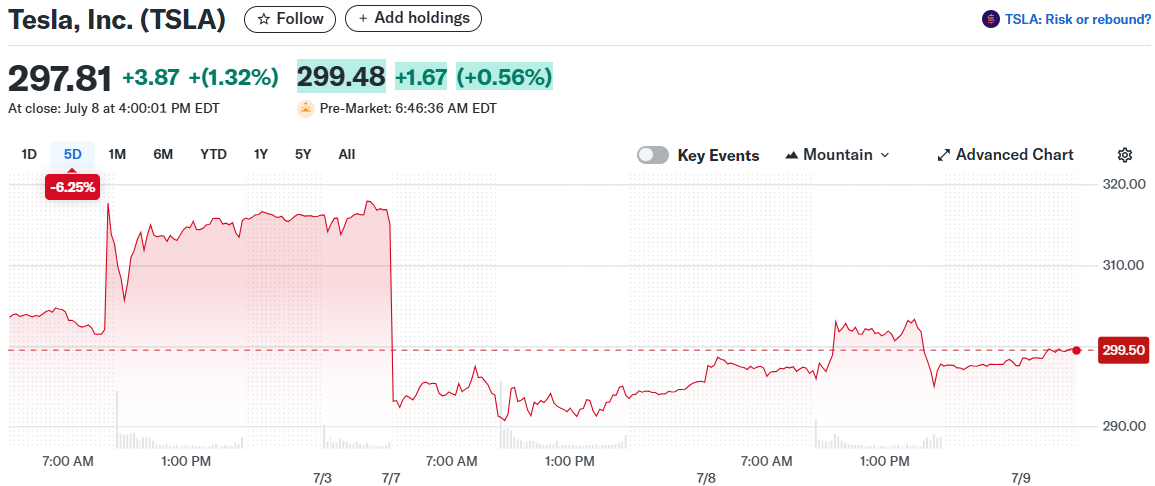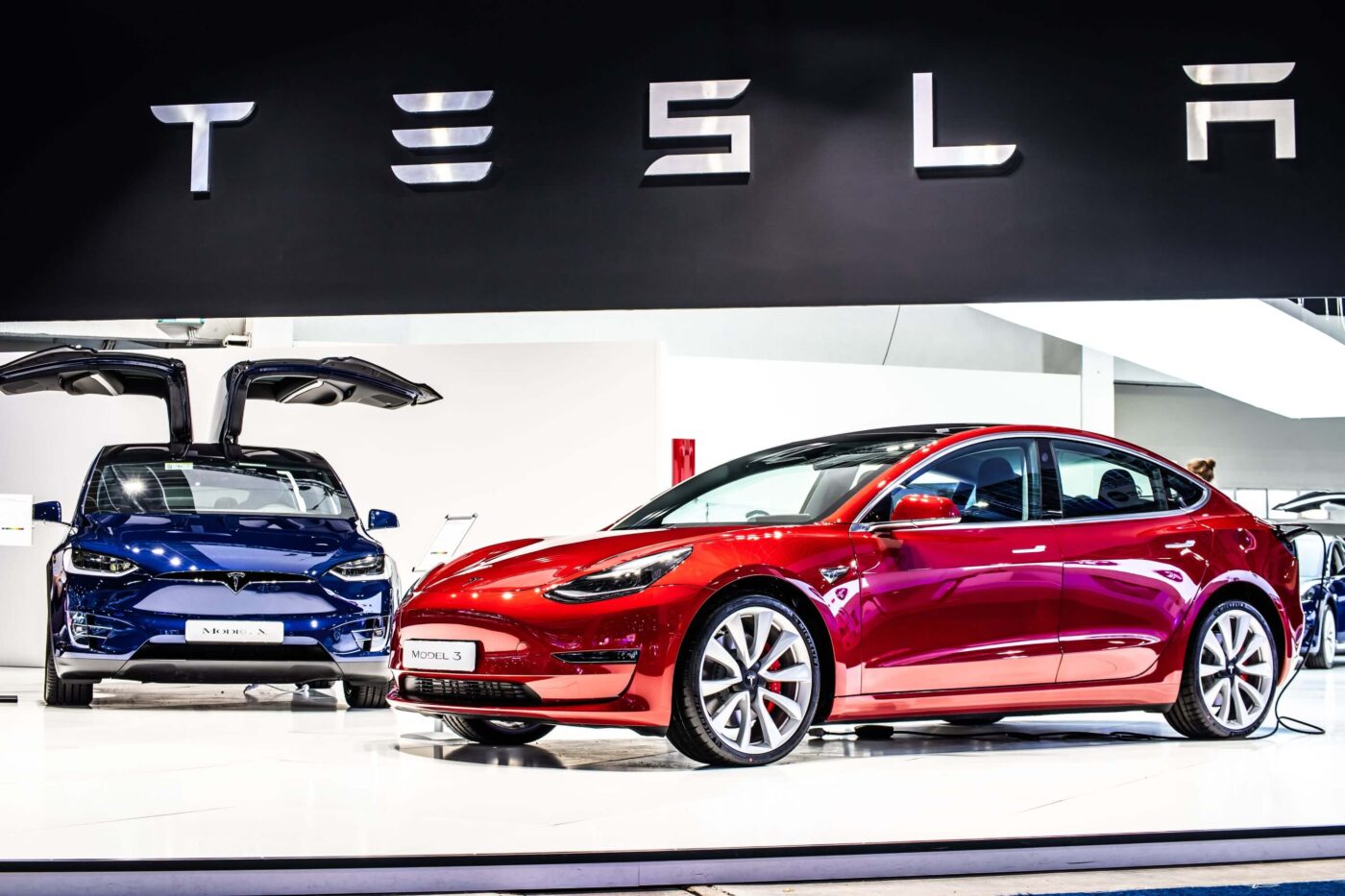TLDR
- Tesla CEO Elon Musk told analyst Dan Ives to “shut up” after Ives proposed board oversight of Musk’s political activities
- Tesla stock dropped 7% Monday following Musk’s announcement of creating the “America Party” political organization
- Tesla delivered 384,122 vehicles in Q2, down 13.5% year-over-year, marking the company’s first annual delivery decline
- Trump’s spending bill threatens Tesla’s regulatory credit revenue stream worth $2.8 billion in 2024
- Tesla’s robotaxi testing in Austin shows promise but faces regulatory scrutiny over traffic violations
Tesla shares tumbled 7% Monday after CEO Elon Musk announced the creation of a new political party called the “America Party.” The stock drop wiped out $68 billion in market value and prompted sharp criticism from Wall Street analysts.

Wedbush analyst Dan Ives, one of Tesla’s most bullish supporters with a $500 price target, called for the company’s board to establish “ground rules” for Musk’s political activities. Ives suggested creating a new pay package for Musk with 25% voting control and implementing “guardrails” on how much time the CEO spends at Tesla.
Tesla Board of Directions…take the following 3 steps in our view
1. New pay package getting Musk to 25% voting control. Clears a path for xAI merger.
2. Guardrails established for amount of time Musk spends at Tesla as part of pay package
3. Oversight on political endeavors 🎯— Dan Ives (@DivesTech) July 8, 2025
Musk’s response was swift and blunt. “Shut up, Dan,” he wrote on X, dismissing the analyst’s recommendations despite their potential to give him the voting control he has long sought.
The clash comes at a challenging time for Tesla’s core business. The company delivered 384,122 vehicles globally in Q2, representing a 13.5% decline year-over-year. This follows Tesla’s first-ever annual delivery decline in 2024, when it delivered 1.78 million vehicles compared to 1.8 million in 2023.
Tesla’s struggles extend beyond delivery numbers. European EV registrations fell 27.9% in May compared to a year ago, according to the European Automobile Manufacturers Association. Meanwhile, overall EV registrations in the region rose 25%, highlighting Tesla’s specific market share losses.
In the United States, Cox Automotive estimates Tesla’s Q2 sales dropped 19.5% year-over-year to approximately 132,000 units. The decline reflects what Cox’s Stephanie Valdez Streaty calls “intensifying competition, an aging model lineup, and signs of brand fatigue.”
Regulatory Credit Revenue Under Threat
Trump’s “One Big Beautiful Bill” poses a double threat to Tesla’s financial performance. The legislation eliminates the $7,500 federal EV tax credit effective September 30, making Tesla vehicles more expensive for consumers.
More critically, the bill reduces fines for automakers that fail to meet EPA fuel efficiency standards. This change eliminates market demand for Tesla’s regulatory credits, which generated $2.8 billion in revenue in 2024 – representing 16% of the company’s total gross profit.
William Blair analyst Jed Dorsheimer estimates that 75% of Tesla’s regulatory credit revenue relates to these standards. He projects the revenue stream will be “zeroed out” by 2027, delivering a substantial hit to Tesla’s profits.
CFRA analyst Garrett Nelson describes regulatory credits as “a very high-margin revenue stream for Tesla,” contrasting sharply with the company’s lower-margin automotive business. Without these credits in Q1, Tesla would have posted a quarterly loss.
Robotaxi Testing Shows Promise and Problems
Tesla’s robotaxi testing in Austin, Texas, represents a key pivot toward higher-margin AI services. The tests began smoothly last month, offering hope for Musk’s vision of creating trillions in value through autonomous driving technology.
However, recent videos show Tesla robotaxis exceeding speed limits and committing traffic violations, including driving through turn-only lanes and crossing double yellow lines. Government regulators are monitoring the situation closely.
William Blair’s Dorsheimer expects continued pressure on Tesla’s stock but sees potential in the robotaxi rollout. “On the positive we will look for more datapoints on the robotaxi rollout to rebuild investor confidence,” he wrote.
Tesla faces competition from Alphabet’s Waymo, currently the leader in robotaxis, and Amazon’s expanding Zoox division. Despite these challenges, Wedbush’s Ives believes Tesla’s global scale positions it to “own the autonomous market.”
The company’s stock has declined over 25% this year, making it the worst performer among tech megacaps. Tesla’s current stock price stands at $297.81, down from recent highs but still reflecting investor hopes for the company’s AI and robotaxi future.






